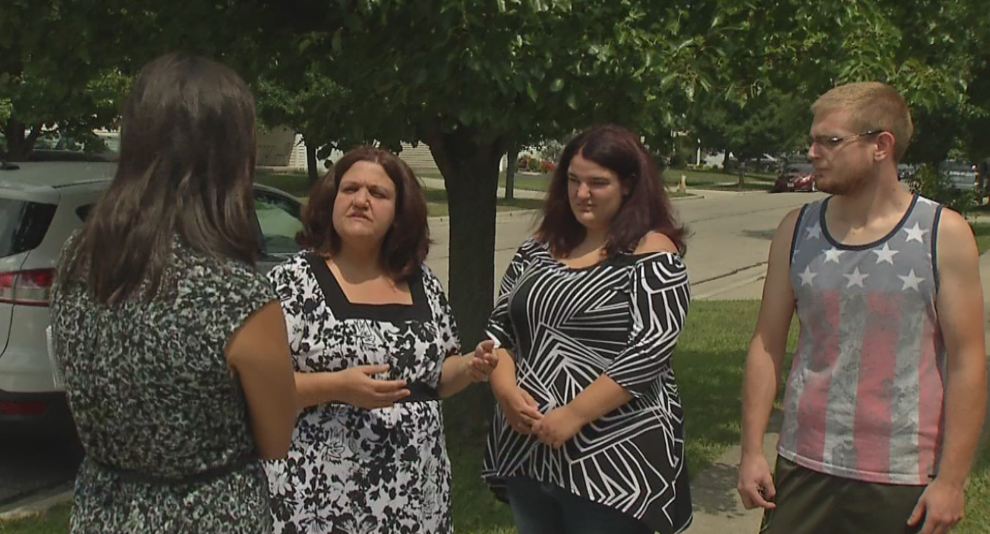COLUMBUS (WCMH) – Families with students enrolled in ECOT are worried whether the online charter school will be shut down with just a few weeks before school begins.
The e-school and the Ohio Department of Education are currently arguing over funding and attendance records. ECOT is Ohio’s largest online charter school, with over 15,000 students enrolled.
According to the Department of Education, ECOT received over $100 million in funding during the 2015-2016 school year. Their funding, like all public schools is based on attendance–which is being called into question.

“It’s given us flexibility,” says Jacqueline Andy, whose children are enrolled in ECOT. “The teachers are incredible.”
But, with the lawsuit between ECOT and the Department of Education, she says her kids’ academic future is uncertain.
“It does worry me. It worries me very much,” says Andy.
Funding for ECOT and other e-schools is based on the Department of Education’s formula, requiring 920 hours of student instruction per student, per year. An audit is conducted every five years to make sure schools are compliant.
Brittany Halpin, associate director of media relations for the Ohio Department of Education, issued the following statement to NBC4:
“The Department is committed to ensuring that all community schools receive their correct funding, and that community schools are actually providing the educational services and programming for which Ohio taxpayers are paying. Given the litigation that is currently pending between ECOT and the Department, we have no further comment at this time.”
To do the audit, the state asked for attendance records of ECOT students, but the school refused, saying that request breached their contract. After a judge’s order, ECOT says it gave the state over 25,000 pages of documentation earlier this week.
But now, a new lawsuit is being filed against the state again, this time from the families of some ECOT students.
“The lawsuit notes that ODE (Ohio Department of Education) engaged in an unlawful bait and switch on ECOT by attempting to retroactively apply an improperly promulgated, substantive ‘rule’ in violation of ECOT’s prior written agreement with ODE. Indeed, the lawsuit reflects ODE’s unlawful attempt to not only avoid its long-standing contractual obligations, but also to ‘make law’-a process reserved to the legislature and/or the specific rule-making procedures provided in Chapter 119 of the Ohio Revised Code. Specifically, the lawsuit challenges ODE’s attempt to impose a funding methodology that is inconsistent with Ohio law and which has the effect of singling out eschool, and, specifically, ECOT, families for deprivation of their legislatively-recognized right to school choice,” said ECOT spokesperson Neil Clark in a statement.
“Thus, the families’ lawsuit seeks relief from ODE’s unlawful actions, which can only be viewed as purposeful discrimination against ECOT, and more importantly, those Ohio families who have exercised their right to school choice by selecting ECOT. ODE’s actions in this regard are illogical, arbitrary and not rationally related to any legitimate governmental purpose, and they violate the families’ Equal Protection rights under the Ohio constitution,” said Clark.
Director of Communications at the Auditor of the State’s Office Ben Marrison tells us in an email:
“One of the reasons we’re in this situation with ECOT is that we have a weak state law and a bad contract between the Ohio Department of Education and ECOT that limits the information the virtual school is required to keep and ultimately what our auditors can demand. Unfortunately, the contract ODE signed allows ECOT to provide us with affidavits signed by teachers to document that students are getting the legally required amount of learning time. That is problematic for auditors because we can only enforce what is written in state law and in the contract. The current documentation requirements in state law and in the contract between ODE and ECOT make it difficult for auditors to determine whether taxpayer dollars are being used appropriately at all virtual schools.”
Marrison also says Auditor Dave Yost asked the legislature to add new requirements to state law that would strengthen what records electronic schools must retain, but they were not included in the most-recent reforms.




